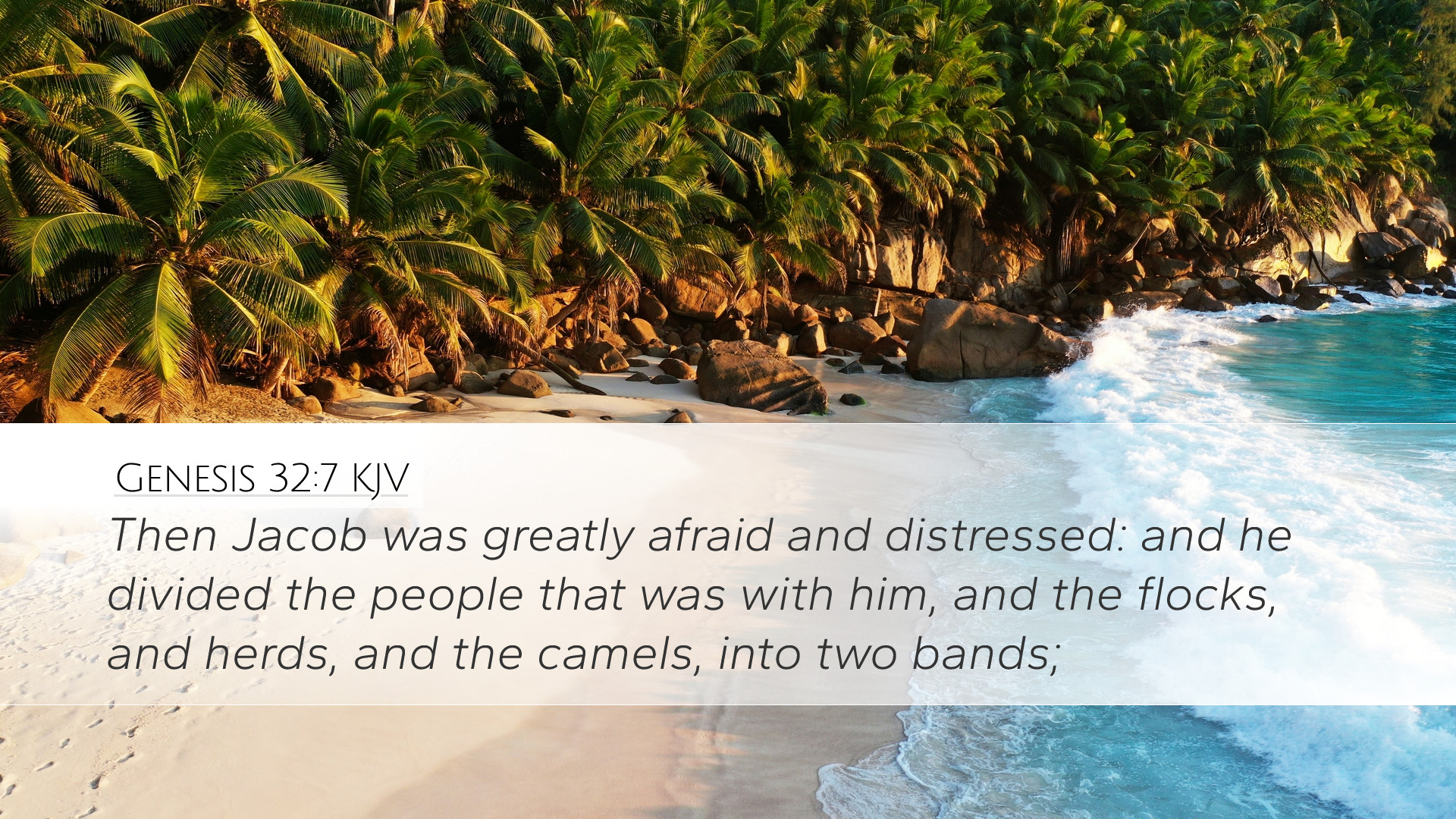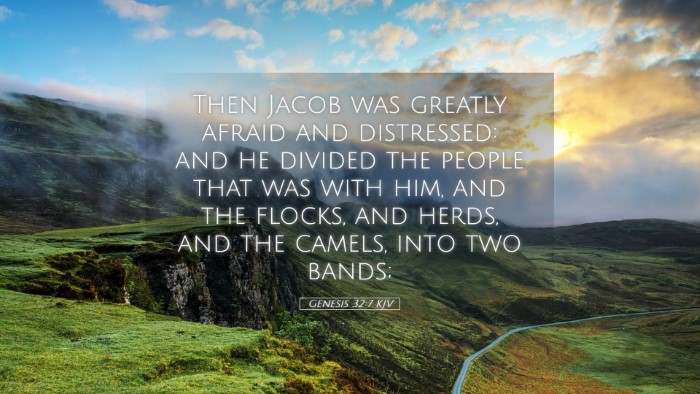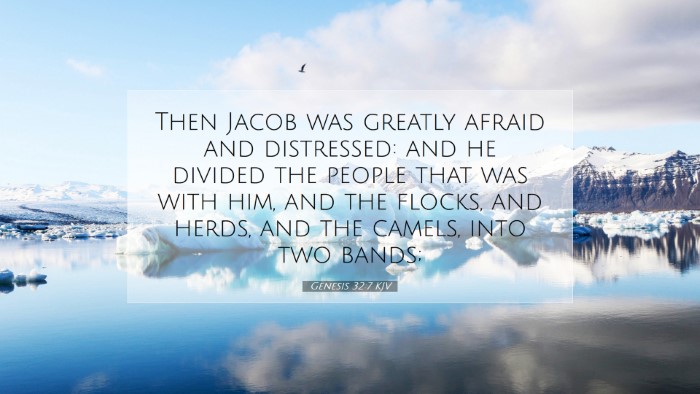Commentary on Genesis 32:7
Genesis 32:7 states: "Then Jacob was greatly afraid and distressed; and he divided the people that were with him, and the flocks, and herds, and camels, into two bands."
Context and Background
This verse comes at a critical juncture in Jacob's life as he prepares to encounter his brother Esau after many years of separation, having fled from his brother's wrath. Matthew Henry comments on the psychological tension Jacob experiences, marking a significant moment of fear and distress that reflects a deeper internal struggle. Understanding the relational dynamics between Jacob and Esau, alongside Jacob's previous actions, is vital for comprehending the gravity of his situation.
Analysis of Fear and Distress
Jacob's fear is palpable; it is not merely a reaction to a perceived physical threat. According to Albert Barnes, this emotional response illustrates Jacob's awareness of the consequences of his past deceitful actions, namely stealing Esau's birthright and blessing. In reflecting upon this distress, one can glean significant spiritual lessons regarding the consequences of sin, the importance of reconciliation, and the human tendency toward anxiety in the face of uncertainty.
The Nature of Jacob’s Fear
- Anticipation of Conflict: Jacob anticipates a confrontation with Esau, fearing the loss of his life and the lives of those who accompany him.
- Internal Guilt: His fear is compounded by the guilt of his past actions, and this highlights the biblical notion that unresolved guilt can lead to profound distress.
Dividing the Camps: A Strategic Move
Jacob's decision to divide his people and assets into two camps serves dual purposes: it is a practical strategy to mitigate potential losses and a demonstration of his shrewdness, a hallmark of Jacob’s character. Adam Clarke emphasizes this division as reflective of a man who is both wise and afraid, showcasing his resourcefulness in dire circumstances.
Spiritual Lessons from the Division
- Preparation for the Unexpected: Jacob models for us the wisdom of being prepared for unforeseen circumstances. In pastoral ministry, this can translate into being spiritually and practically ready to face challenges ahead.
- The Importance of Community: The division into bands emphasizes the communal aspect of facing adversities together, underlining the importance of familial and community support through trials.
Faith Amidst Fear
Despite his fear, Jacob’s actions indicate a deeper faith in God’s promise. Henry points out that while Jacob is afraid, he simultaneously seeks God’s intervention, which aligns with the biblical call to bring our fears before the Lord. This aspect of his character fosters a rich reflection on contrasting human emotions - fear and faith coexisting within believers.
Seeking Divine Assistance
- Prayer and Fasting: In preparation for his encounter with Esau, Jacob engages in prayer (not explicitly in this verse but inherently understood in the chapter), demonstrating reliance on God in times of fear.
- A Contrast with Esau: Jacob's apprehension contrasts with Esau's expected approach, invoking questions about the nature of divine favor and how it is perceived by different characters in the narrative.
Conclusion
Genesis 32:7 serves as a powerful reminder of the complexities of human emotion in the face of trials and the necessity of faith amidst fear. For pastors and theologians, this verse invites a deeper exploration of themes such as reconciliation, the weight of past sins, and the behaviors we employ in the face of fear. The commentary from figures like Matthew Henry, Albert Barnes, and Adam Clarke enriches our understanding of not just Jacob's individual experience, but the broader implications for the community of faith.
As we reflect on Jacob's journey, we are encouraged to consider how we respond to our own fears and uncertainties. Are we fearful like Jacob, but also lifting our concerns to God in prayer? Are we prepared to act strategically in times of trouble, while also trusting God's promises to us?


